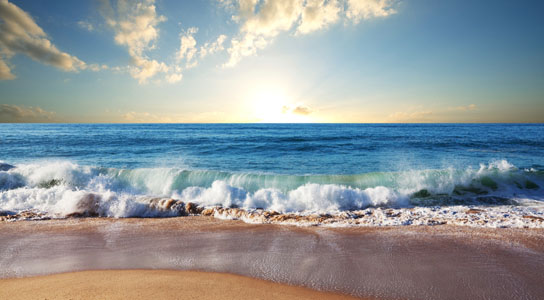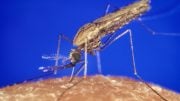
A new Ocean Health Index developed with help from Stanford researchers evaluates several factors of ecosystem health.
Scientists have completed the first comprehensive assessment of the ocean and its ecosystems, called the Ocean Health Index. The overall index score was 60 out of 100 (range 36–86), with developed countries generally performing better than developing countries, but with notable exceptions.
An international team of scientists has conducted the first comprehensive assessment of the ocean and its ecosystems, called the Ocean Health Index, to provide a snapshot of the current state of the world’s oceans. Overall, the global average was 60 out of 100, with countries ranging from 36 to 86.
If thought of as a school report card, 60 out of 100 looks like a failing grade, but that’s not quite how the assessment should be read. “It’s better to think of it like a stock portfolio,” said Stanford’s Larry Crowder, the science director at the Center for Ocean Solutions and a member of the international working group that produced the report.
“We evaluated 10 public goals for each country. Some are doing really well for biodiversity, but not so well for food provision. Or some are doing really well for tourism, but poorly at protecting iconic species,” said Crowder, a professor of biology. “The Ocean Health Index is an aggregate of those scores. It’s a device to help us think about the ocean in a more integrated way.”
The study is published in the August 15th edition of the journal Nature.
The Center for Ocean Solutions in Monterey, California, is a collaboration of the Stanford Woods Institute for the Environment, Stanford’s Hopkins Marine Station, the Monterey Bay Aquarium, and the Monterey Bay Aquarium Research Institute.
About those scores
The scores don’t necessarily represent failure, but are a reflection of the current state of ocean health. For example, the United States scored slightly above average (63), but rated relatively low on aquaculture and sustainable fishing.
“The good news for fisheries in the United States is that although the stocks are reasonably depleted, trends in recent legislation have us on a track of rebuilding those stocks,” Crowder said. “We think that fisheries should be getting better, based on actions we’ve already taken.”
There is no one global fix-all. The hope is that each country’s ocean managers will look at the assessment and figure out the best way to improve their individual scores. A small Pacific island can improve fishing practices or the quality of its reefs, for example, but, because of its size, would have difficulty making a major impact on climate change provisions.
A critical element of the Ocean Health Index is that it fully includes humans as species that act on the ecosystem, but are also sustained by it. “The fact is, we live in a world with 7 billion plus people,” Crowder said. “A healthy ecosystem has to maintain economies.”
Sustainable fishing
“The best condition for fisheries is not not fishing, but practicing sustainable fishing and providing those benefits to the fishing community,” Crowder said. “We need strong policy and action on that policy, but also to engage the fishing communities and say, ‘We’re interested in the sustainability of fish, but also of you and your livelihoods. If you fish more sustainably today, you’ll benefit from it tomorrow.'”
The index could be updated every year; but because of the time and effort that would require, and the fact that some indicators take decades to show a response, Crowder thinks it might be better to issue a new index every five years.
Reference: “An index to assess the health and benefits of the global ocean” by Benjamin S. Halpern, Catherine Longo, Darren Hardy, Karen L. McLeod, Jameal F. Samhouri, Steven K. Katona, Kristin Kleisner, Sarah E. Lester, Jennifer O’Leary, Marla Ranelletti, Andrew A. Rosenberg, Courtney Scarborough, Elizabeth R. Selig, Benjamin D. Best, Daniel R. Brumbaugh, F. Stuart Chapin, Larry B. Crowder, Kendra L. Daly, Scott C. Doney, Cristiane Elfes, Michael J. Fogarty, Steven D. Gaines, Kelsey I. Jacobsen, Leah Bunce Karrer, Heather M. Leslie, Elizabeth Neeley, Daniel Pauly, Stephen Polasky, Bud Ris, Kevin St Martin, Gregory S. Stone, U. Rashid Sumaila and Dirk Zeller, 15 August 2012, Nature.
DOI: 10.1038/nature11397









Be the first to comment on "Ocean Health Index, a Comprehensive Assessment of the Ocean and Its Ecosystems"